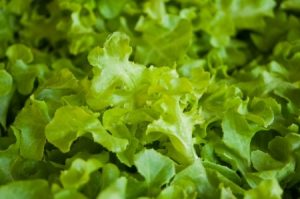
Vitamin D, or the lack of, seems to be the latest health fad. The allopathic community typically criticizes the need for vitamin supplements, and traditionally, most doctors believe that taking vitamins is a waste of time and money.
Yet, today, they are pushing vitamin D.
This sends up a red flag to me, and I wonder why? What’s their interest in this vitamin, but not other supplements, and why now?
I think what we are looking at here is a response to substandard farming, foods devoid of natural nutrients, and sterile GMOs, which appear to have ZERO NUTRITIONAL VALUE, particularly NO VITAMIN D3.
If you aren’t getting your vitamin D from sunlight, ask yourself, why not? Maybe you need to get outside more, or take your elderly parents to the park more often.
If you are not getting enough D3 from whole foods, redesign your diet and your shopping list.
If you are taking a vitamin D supplement, make sure it is the purest form available, and that it is D3.
Lots Of Questions
I am always supportive of anyone keeping their essential nutrients in balance, and due to the lack of nutrients found in corporate farming and GMO food products (that apparently do NOT uptake sunlight in the “normal” way), I am a believer in taking a quality vitamin and trace mineral at least 4-5 times a week. (I use Juice Plus, and highly recommend it, especially for people on the go and for the kiddos.)
But, I am left with more questions than answers concerning this AMA push to load patients up on vitamin D. For one thing, is it the right kind of D?

- Nicknamed “the sunshine nutrient“, vitamin D3 is produced in the body when exposed to sunlight, so why isn’t this working for people today? It worked for my grandparents. I speak with lots of people who are outside regularly, yet their doctors have told them that they are low in vitamin D. How can this be? Does this mean that your dog and cat are absorbing sufficient amounts of vitamin D from the sun, but YOU are not? Something’s just not square here.
- Vitamin D3 can be obtained through foods, such as fish, eggs, dairy, vegetables, like mushrooms and kale. Are GMOs and sub-standard crops lacking in this healthy nutrient due to pesticides and the depletion of the soil? Does this, alone, confirm that GMOs and Big Agra foods have NO NUTRITIONAL VALUE?
- What form of vitamin is your doctor testing you for – D1, D2 or D3?
- Are the medical lab tests accurate? Who determined how much vitamin D should be circulating in your blood? And which type – 1,2, or 3?
Research
Here we go again, researching yet another natural nutrient that has never been an issue before – never an issue for the past generations. I agree that vitamin D is very important for good health, but this time, I tend to agree with the researchers who recommend holding off on these supplements until vitamin D1, D2, and D3 have been studied more intensely.
Researchers currently studying vitamin D supplements found no benefit to taking vitamin D2, but, middle-aged and older adults taking D3 showed an 11% reduction in mortality from all causes compared to adults who did not supplement with D3.
There is no doubt that lower vitamin D levels are associated with illness, but keep in mind that vitamin D3 is found in quality foods and in natural sunlight. Instead of taking a pill, the researchers suggest that people can improve their vitamin D levels with an adequate diet and spending 30 minutes in natural sunlight at least twice a week.
I whole-heartedly agree.

Top 10 Health Benefits Of Vitamin D
- helps the intestine absorb nutrients, including calcium and phosphorus; this supports a strong immune system;
- helps regulate the body’s calcium balance, which supports strong bones and aids in the prevention of osteoporosis and arthritis;
- regulates blood pressure;
- reduces stress and tension;
- aids in insulin secretion;
- improves overall skin health (which reduces wrinkles);
- improves cardiovascular strength by supporting the protective lining for the blood vessels;
- supports kidney function;
- controls abnormal multiplication of cancer cells;
- helps regulate insulin production.
Although vitamin D supplements are not as effective as synthesizing vitamin D naturally by the body, the right kind of supplements (D3) can still be effective in treating several medical conditions.
The most important factors in obtaining vitamin D are going outside in the sun (morning or evening), doing some exercise, and following a healthy, organic diet.